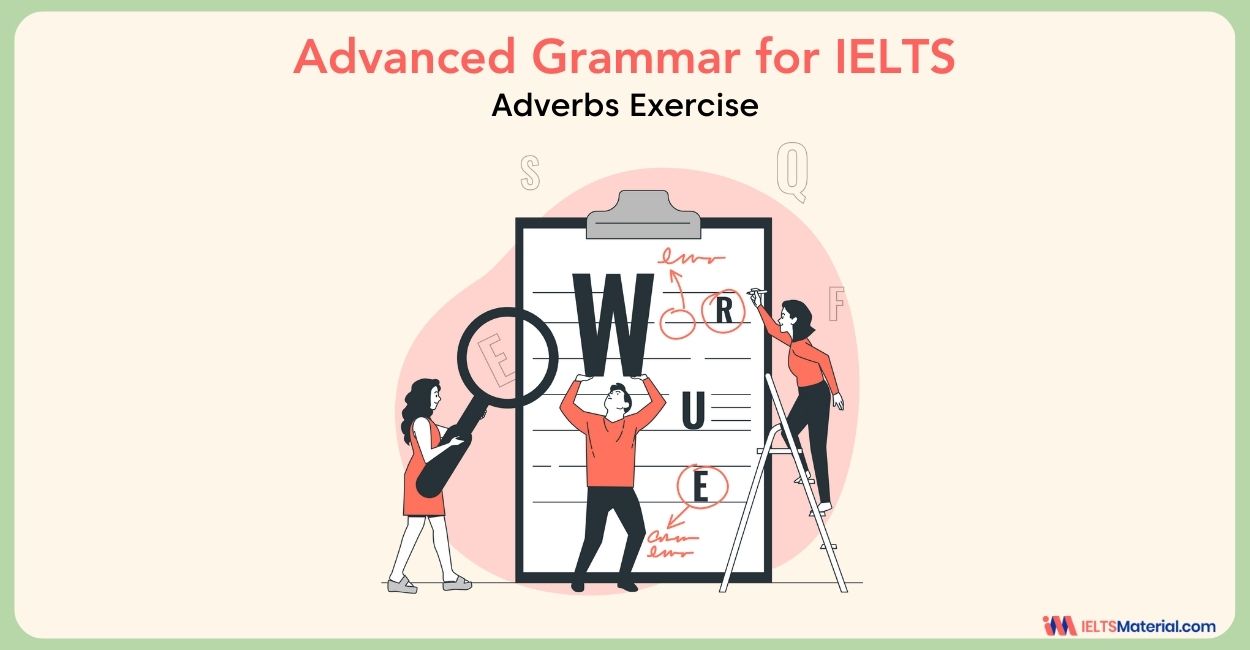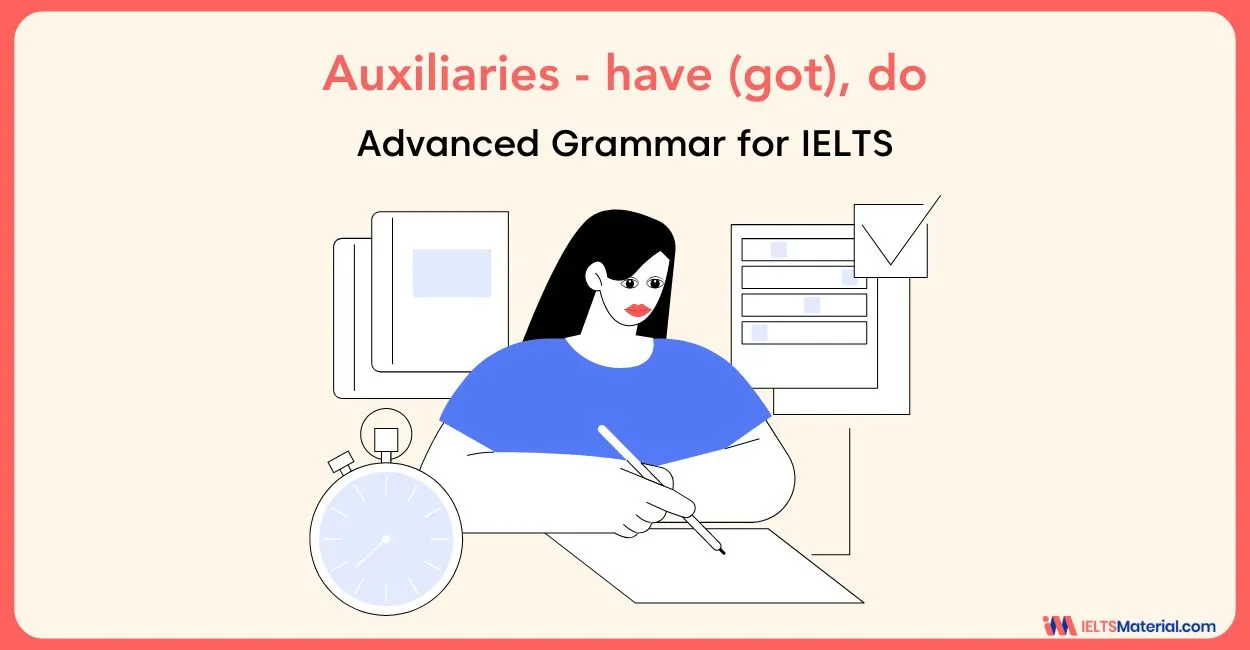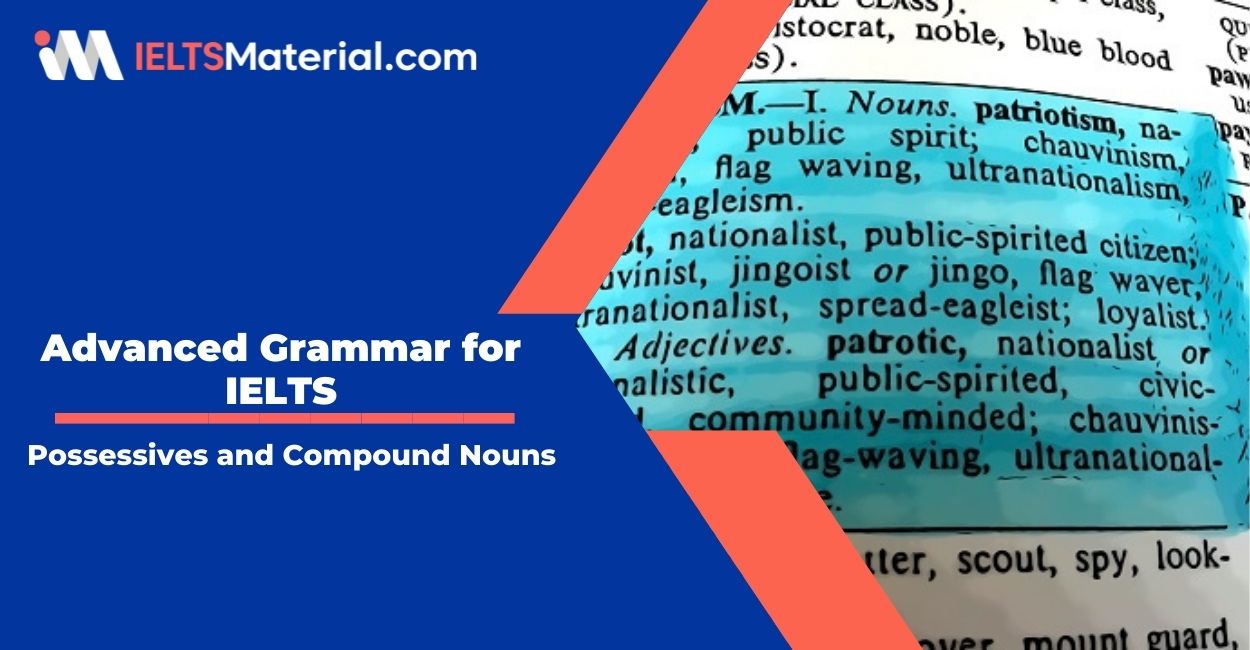Advanced Grammar for IELTS: Confusing Verbs
Table of Contents

Limited-Time Offer : Access a FREE 10-Day IELTS Study Plan!
Introduction:
Navigating the complexities of English verbs can be challenging, especially when preparing for the IELTS exam. Advanced Grammar for IELTS: Confusing Verbs provides clear explanations, examples, and practice exercises to help you master tricky verb pairs. By understanding and correctly using these confusing verbs, you can enhance your writing and Speaking skills, boosting your overall IELTS band score .
Advanced Grammar for IELTS: Confusing Verbs – Diagnose Test, Grammar Explanation & Practice Exercises
Diagnostic Test: Confusing Verbs
Replace the expressions in bold in these sentences using a suitable form of make or do.
Example:
- I like listening to the radio while washing the dishes ==> doing
1. Sammy earns a lot more than I did at his age.
2. That old curtain fabric has become a marvellous ball gown.
3. You can go out after you have completed your homework.
4. What an awful outfit; you’d think she had sewn it herself!
5. We carry out the staff appraisals once every six months.
6. She is undertaking research into brand name recognition.
7. Make sure you brush your teeth before you go to bed.
8. Stop dithering. You must come up with a decision now.
Underline the best form in bold in each of these sentences.
Example:
- Would you mind if I did/ made a suggestion about this?
9. Sue’s had/ taken a real dislike to her new supervisor.
10. It’s high time the committee had/ took action over this flagrant abuse.
11. Grace has gone/ been on holiday in Jamaica and she’s come back with a lovely tan.
12. I’m a little faint. Could I lie/ lay down on the sofa for a minute?
13. The men have just lain/ laid a brand new carpet in the bedroom.
14. I was so tired yesterday that I lay / lied in bed for most of the day.
15. Anatoly speaks/ talks English with a strong accent.
16. The Prime Minister spoke/ talked at the international conference in Geneva.
17. She’s such a chatterbox, we were up half the night speaking/talking.
18. What do you think of that plan to rise/ raise the ‘Titanic’ from the seabed?
19. I’m afraid a rather serious problem has raised/ arisen.
20. Tax rates always seem to be rising/ raising these days.
21. They robbed/ stole my purse in broad daylight!
22. I regret to inform you that the bank will be unable to lend/ borrow the sum you have requested.
23. Graham and Lucy are coming here for the weekend and I think they are bringing/taking the children with them.
24. Sorry I’m home so late, I took/brought the car to work today and I got stuck in a traffic jam.
25. Would you mind bringing/ fetching the children from school next Tuesday?
Get Our Newest Edition of the IELTS Vocabulary Book Now!
Grammar Explanation: Confusing Verbs
Some pairs of verbs in English are subtly different from each other and so can be a source of confusion for learners. This is because the pairs, e.g. make and do, lay and lie have similar meanings but are used to describe different kinds of actions or situations. These are ‘false synonyms’. In other cases there are verb pairs which cause problems because we use them to describe similar situations even though they have opposite meanings, e.g. borrow and lend. These are ‘opposite pairs’. In this unit we look at the verb pairs which are most often confused.
False Synonyms
Several verbs appear to have similar meanings but are used differently.
Make and do
Make often means ‘create’ or ‘produce’:
- Aunt Alice is going to make the bridesmaids’ dresses.
- Gouda cheese is made in Holland.
Make often expresses the idea of building and constructing:
- The multinationals are making a lot of products in the developing world these days.
We also use make to describe a process of change. The meaning is similar to ‘become’ or ‘cause to be’:
- The spare bedroom has made a wonderful office for Deirdre. (= has become)
- Those new drugs seem to make him very lethargic. (= cause him to be)
Make + object + infinitive (without to) means ‘force’ or ‘command’:
- The police officer made me empty my pockets.
Make has a number of idiomatic meanings such as ‘earn’ and ‘keep an appointment’:
- He makes $1000 a week on the oil rigs.
- I can’t make it on Friday; I’m in a meeting all day.
We often use do to describe an activity or to mean ‘carry out/complete a task’:
- What are we going to do for your birthday? (= take part in an activity)
- You can go out after you’ve done your homework. (= you’ve completed)
We can use do + determiner + –ing form to describe regular tasks at home or at work:
- There isn’t much in the fridge as I haven f done the shopping yet.
- We do the stocktaking every Wednesday morning.
Expressions with make and do
There are several multi-word verbs with make or do:
- Don’t believe a word he said, he made it all up. (= invented)
- The government did away with the death penalty in the sixties. (= abolished)
Note: There are a number of fixed expressions with either make or do:
X It’s time to do a decision
✓ It’s time to make a decision
X Who made your hair?
✓ Who did your hair?
Here are some of the most common expressions with make and do. (Note that in the table below, sb = somebody and sth = something.)
| Make | ||
| an attempt
an appearance an appointment (= arrange) arrangements a bed a (phone) call a charge (for sth) a choice a comment a contribution a decision a difference a discovery an effort an enemy of sb an enquiry |
an exception
an excuse a fire a fortune friends (with sb) a fuss a gesture a good/ bad job of sth a habit of sth a journey a list a living love a mess a mistake money |
a noise
an offer a plan a point a profit progress a promise a remark a sound a speech a start (on sth) a suggestion time (for sthlsb) trouble war a will |
| Do | ||
| your best (= try hard)
business (with sb) the cleaning/ cooking/ ironing/washing (up) a course some damage your duty the dishes an exam/a test an/some exercise |
an experiment
sb a favour good (= help other people) sb some good (= make sb better/healthier) your hair/ face/ nails harm the homework/ housework yourself an injury a job |
the laundry
military service research the shopping sport your teeth (= brush/clean) well/ badly (= be successful/ unsuccessful) |
Have/ take + noun
We can describe some actions with either have or take; in other cases we only use one of these verbs:
| Have | Take | Have or Take | ||
| an appointment (= an existing arrangement)
an argument a baby a care a chance (to do sth) a chat a dance a drink an effect (on sth) a fall a fit a go an/ no/ any idea |
lunch/dinner/
a meal a quarrel a race a row a/the right (to) a say something to eat a talk a think (no/!the) time a wash a word (with) |
account of
action advantage (of) a breath care (of) a chance a decision a dislike to sth/sb effect exception (to) the form of medicine/drugs a message offence (at sth) |
part (in)
a photo(graph) place power precedence (over) responsibility (for) a risk root sides (with sb) a step/ steps the trouble (to) years/ months/ weeks/ days/ hours, etc. |
a bath/ shower
a break an exam/ test a guess a holiday a vacation a look a nap a rest a seat a sip a stroll s swim |
Been/ Gone
The two past participle forms, gone and been, are used with similar but slightly different meanings. In British English we use been, not gone, when we express the idea of visiting or going somewhere and then leaving or returning:
- Jane’s just got back.
X She’s gone to the doctor’s.
✓ She’s been to the doctor’s. (= She went and then came back.)
We use gone, not been, when someone has gone somewhere but not yet come back:
- Jane isn’t here right now.
X She’s been to the doctor’s.
✓ She’s gone to the doctor’s. (= She went there and hasn’t returned.)
For both of these situations, gone is commonly used in US English.
Lay/lie
To lay expresses an action; it means to put something or someone down in a flat position. To lie describes a state of being in a horizontal position. Compare:
- You will find the process easier if you lay all the parts on a worksurface. (action)
- I think I’ll just lie on the sofa until my headache goes. (state/position)
There is also the verb lie meaning ‘to say something that isn’t true’:
- That child lies all the time. (= says things which are not true)
Notice that these three verbs have different forms:
| Infinitive | Past tense | Past participle | Present participle |
| Lay (= action) | Laid | Laid | Laying |
| Lie (= state) | Lay | Lain | Lying |
| Lie (= tell lies) | Lied | Lied | Lying |
- They’ve laid new carpet throughout the house.
- We’ve been laying artificial grass on the new football pitch.
- We found the old photographs lying in a drawer.
- Yesterday I was so tired that I lay on the bed all morning. (past simple of lie)
Speak/ Talk
Speak and talk have very similar meanings and are often equally appropriate:
- I’m going to talk/speak to my teacher about it after the lesson.
We usually use speak, not talk, for formal speeches when a person in authority is addressing an audience:
X The Prime Minister talked to Parliament this morning.
✓ Before the election the President spoke to the nation on television.
We use speak, not talk, to refer to languages:
X Anatoly talks English with an accent.
✓ Anatoly speaks English with an accent.
We use talk for long conversations:
X We were up half the night speaking!
✓ We were up half the night talking!
There are a number of expressions with speak or talk:
- Could you speak up I can’t hear you. (= talk louder)
- I’d like to talk about our new sales strategy. (= explain/discuss)
- You’re talking nonsense. (I strongly disagree with what you are saying.)
Raise/ Rise/ Arise
Raise refers to the action of someone or something lifting, increasing or moving something else in an upward direction. To rise only refers to the movement itself:
- The government has been urged to raise corporation tax rates to match those in other European Union states. Rates are predicted to rise by ten per cent.
Note: Because raise refers to an action done to something or someone else it always has a direct object:
X Fares will raise next year.
✓ They will raise the fares next year.
Rise cannot have an object:
X They will rise the fares next year.
✓ Fares will rise next year.
In formal English we sometimes use arise to refer to problems or difficulties occurring:
- Tissue rejection is a problem which can arise in this procedure.
Note: Arise does not have an object:
X Let’s hope nobody arises that issue
✓ Let’s hope that issue doesn’t arise
Note that these verbs have different forms:
| Infinitive | Past tense | Past participle | Present Participle |
| raise | raised | raised | raising |
| rise | rose | risen | rising |
| arise | arose | arisen | arising |
Rob/ Steal
We use rob to refer to the person or place that suffered the robbery; we use steal to refer to what was taken:
X Thieves stole my uncle.
✓ Thieves robbed my uncle.
X A gang stole the head office.
✓ A gang robbed the head office.
X They robbed his gold watch.
✓ They stole his gold watch.
We can use the preposition ‘from’ to link steal to a person or place:
- Colonel Blood stole the crown jewels from the Tower of London in 1665.
We can use the preposition ‘of’ to link rob with the thing which was taken:
- No man has the right to rob another of his freedom.
Opposite Pairs
Some verbs act as ‘mirror images’ of each other. They describe the same event from different sides.
Borrow/ Lend
If you want to use something that belongs to someone else you can borrow it from them. The owner of something can lend it to you for a certain period:
- ‘Dad, could we borrow your electric drill?’ ‘Sorry. I’ve already lent it to Michael.’
Bring /take (and fetch)
Bring means to take someone or something with you to the place you are now, to your home, or to the place/event you have been talking about:
- I’ve brought the pliers you said you needed.
- When are you going to bring your new boyfriend to meet us? (to our house)
- Jane and I got lost on the top of the mountain and we had to stay there till morning.
- Fortunately Jane had brought some food and water.
Take means to move someone or something away from the place you are now, away from your home or away from the place/event you have been talking about:
- I can’t find the cheque book – Dennis must have taken it when he left this morning.
- When are you taking me to meet your parents? (away from here to their home)
Note: The choice of verb depends on the situation of the speaker:
- Are you bringing your scuba gear? (on our holiday)
- Are you taking your scuba gear? (on your holiday)
- I brought the car to work today. (I am at work now.)
- I took the car to work today. (I am not at work now.)
Fetch means to collect someone or something from another place and bring it to the place you are now, to your home or to the place you are talking about. We don’t use bring with this meaning of ‘collecting’:
X Could you bring the children from school on Monday?
✓ Could you fetch the children from school on Monday? (= go to the school and bring them home)
Also check:
Practice Exercise
Q 1.
Rewrite the sentences using suitable forms of make or do.
- (0) What activities are you planning for next week? ==>….What are you doing next week?.
- Heavy rains have led to parts of the road becoming impassable.
- We’re going to have the roof repaired next spring.
- It’s all part of the research I’m carrying out for my dissertation.
- I’m rather busy this evening so I won’t be able to meet you at the cinema.
- The old pond has become a wonderful paddling pool for the kids.
- How can you talk to me like that after all I’ve achieved for you!
- Are you going to take any more aerobics classes?
- In many countries women still earn less money than men for the same work.
- They forced the hostages to walk for three days without food or water.
- They’ve been producing Rolls Royce cars in the same factory for forty years.
Q 2.
Complete the sentences with a suitable form of have or take.
- You sometimes have to wait a year or two for the plants to really______root in the soil.
- Unless a cheque is received by return of post we will have no option but_______steps to recover the disputed sums through the courts.
- I can’t help you with that, I’m afraid; I_______absolutely no idea when it comes to electrics.
- You want to become a doctor at your age? It ______years to get through a medical degree.
- Do you mind if I______a quick wash before we sit down to eat?
- She’s very worried about the takeover. Perhaps you should____a chat with her about it.
- And what makes you think you_____the right to lecture me on morality?
- I’m not feeling too good today; I______the most almighty row with my girlfriend last night.
- In the latest developments in the civil war it appears that the rebel army_____power in the southern provinces.
- I can’t think why you’re so reluctant to go. Come on,_____a risk for once!
- We regret to announce that Alvin Claymore is unable_____part in tonight’s performance owing
- The residents insist on____their say; they’re going to demand a public meeting with the housing committee.
- With any luck the new policing initiative_____a positive effect on the appalling crime rate around here.
- I know I’m old-fashioned but I do_____exception to all the bad language on TV these days.
- You really can’t put this off any longer; you must____a decision on the Knowlson case today
Q 3.
Replace each of the underlined phrases in the text with an expression containing a suitable form of make or do plus a word or phrase from the box. Add any necessary words. The first one is given as an example (0).
| bad job | charge | decision |
| fuss | journey | mistake |
| promise | start | |
| good | laundry | research |
| shopping | trouble | up |
HIGHLAND HELL
This month Jeremy Vegal’s ‘HotelRood Test’ is the Trent Castle Hotel in Scotland.
In the bad old days, Scottish country hotels had a reputation of being cold, draughty and dour places which (0) tried hard to make their guests feel as unwelcome as possible. Well, the tourist industry has moved on and we at TravelDetective felt it was time to see if the winds of change blowing through the British hotel world had yet reached our northern extremities. From the catalogues and brochures, it seems that every castle in Scotland has turned itself into a hotel, and it was difficult to (1) reach a conclusion about which one to try. In the end we settled for a little-known but promising place deep in the Highlands.
So, full of optimism, I (2) travelled north on the overnight sleeper, jumped into a cab and headed east to the Trent Castle Hotel. I had (3) investigated and I knew that the place had been converted from a sixteenth-century fortress about five years ago. From the outside it certainly looked the part with tall granite walls and looming turrets overlooking the dark waters of Lochtrent. But the owners had clearly ( 4) committed an error with their work on the interior. Rather than warm and welcoming, it was just as grim and forbidding as the outside.
I got to my room and, always eager to test a hotel’s efficiency, I (5) began by calling room service and asking for my (6) clothes to be washed. It took forty-five minutes for the chambermaid to arrive, and when she did, she happily informed me that the hotel would (7) impose a fee approximately equivalent to the gross national product of the average third-world nation for each item of clothing I wished to
have cleaned. Never one to (8) complain. I politely declined the offer of instant bankruptcy and decided to ask the woman about the possibility of an extra blanket or ten, as the temperature in my room was hovering around zero and it was only the middle of the afternoon. She (9) guaranteed to bring one straight away, and that was the last I was to see of her for my entire visit.
Anxious to find some warmth, I decided to try out the hotel sauna, sure that some dry heat would (10) be healthy for me. But when I asked the receptionist about the location of this heavily advertised facility, she looked at me as though I had (11) invented it. ‘Been closed for months,’ she announced, if you want something to do you could always go out and (12) buy some things, there’s a lovely souvenir shop six miles down the road.’ The prospect was deeply unexciting.
‘Look,’ I said, ‘I don’t want to (13) cause difficulties, but the sauna is advertised in your brochure.’
‘Oh, that thing’s full of mistakes,’ she replied, ‘The printers really (14) messed it up.’ Rather like the owners, I thought to myself …
- (0): did their best
Q 4.
In the following texts some lines (1-17) have a mistake with the verb and some lines are correct. Find and underline any incorrect verbs and write the correct verb form, then tick (✓) the correct lines. The exercise begins with two examples (0) and (00).
US RATE RISE
- (0) The Chancellor returned from this month’s meeting of the ‘Group ✓
- (00) Six’ with news that interest rates are to be rised by an average of- raised
1. half a percentage point in the United States. While the Chancellor ….
2. has gone in Dallas city markets have been feverish with rumours of ….
3. even higher increases. The US dollar has been laying at an all-time
4. low for several weeks and the American trade deficit has been rising
5. steadily. The Chairman of the Federal Reserve has been to Tokyo to
6. discuss the problems which have arose from pressure in Congress to
7. tackle the deficit. He will be in Japan until next Tuesday.
PRICELESS TREASURE DISAPPEARS
8. The Benton Horde, a priceless collection of ancient Roman silver, has
9. disappeared from its display cabinet in the British Museum. At today’s
10. emergency press conference, Museum director Alan Woods talked of
11. his theory that the treasures had probably been robbed by a professional
12. gang on behalf of a specific collector as the silver is too well-known to
13. be sold on the open market. Ten museums have been stolen in the last
14. six months and the number has been raising steadily over the last few
15. years. The Benton Horde is one of Britain’s most important collections
16. of Roman silver. It was found in 1926, having laid undiscovered for
17. almost sixteen centuries beneath a Sussex field.
Q 5.
Choose the best word in bold for each sentence.
- We’d better order a taxi to bring/ take us to the airport next week.
- My uncle borrowed/ lent me the money to buy my first car.
- Shall I bring/ take my holiday photos when I come over on Saturday?
- Is there any chance of you bringing/ fetching the kids from their swimming lesson tonight?
- The car isn’t here, I’m borrowing / lending it to my sister for the week.
- My boyfriend went to Japan on a business trip and brought/ took me a fantastic MP3 player.
- Can I borrow/ lend your dictionary? I left mine at home.
- When my girlfriend left me she brought/ took my entire CD collection.
- Would you like me to fetch/ bring your car from the garage this afternoon?
- Is there any chance I could borrow/ lend your calculator over the weekend?
Q 6.
Choose the correct label, A or B.
1.
A ‘Of course I love you darling, but when are you taking me to meet your parents?’
B ‘Of course I love you darling, but when are you bringing me to meet your parents?’
2.
A Poor Jenny, she always ends up doing the dishes.
B Poor Jenny, she always ends up making the dishes.
3.
A They’ve robbed the cash machine, officer.
B They’ve stolen the cash machine, officer.
4.
A I’m afraid Steve’s just been to Texas.
B I’m afraid Steve’s just gone to Texas.
5.
A They’re exhausted, they’ve been laying all morning.
B They’re exhausted, they’ve been lying all morning.
6.
A He’s always borrowing her clothes.
B He’s always lending her clothes.
Answer Key for Diagnostic Test
- makes
- has made/ makes
- have done
- had made
- do
- doing
- do
- make
- taken
- took
- been
- lie
- laid
- lay
- speaks
- spoke
- talking
- raise
- arisen
- rising
- stole
- lend
- bringing
- took
- fetching
Answer Key for Practice Exercise
Q 1.
- Heavy rains have made parts of the road impassable.
- We’re going to have the roof done next spring.
- It’s all part of the research I’m doing for my dissertation.
- I’m rather busy/ I’m doing something this evening so I won’t be able to make the cinema/make it.
- The old pond has made a wonderful paddling pool for the kids.
- How can you talk to me like that after all I’ve done for you!
- Are you going to do any more aerobics classes?
- In many countries women still make less (money) than men for the same work.
- They made the hostages walk for three days without food or water.
- They’ve been making Rolls Royce cars in the same factory for forty years.
Q 2.
- take
- to take
- have
- takes/will take
- have
- have
- have
- had
- has taken
- take
- to take
- having
- will have
- take
- take
Q 3.
- make a decision
- made a journey
- done (some) research
- made a mistake
- made a start
- laundry to be done
- make a charge
- make a fuss
- made a promise
- do me good
- made it up
- do some shopping
- make trouble
- made a bad job
Q 4.
- ✓
- gone ==> been
- laying ==> lying
- ✓
- been ==> gone
- arose ==> arisen
- ✓
- ✓
- ✓
- talked ==> spoke
- robbed ==> stolen
- ✓
- stolen ==> robbed
- raising ==> rising
- ✓
- laid ==> lain
- ✓
Q 5.
- take
- lent
- bring
- fetching
- lending
- brought
- borrow
- took
- fetch
- borrow
Q 6.
1. A
2. B
5. B
4. A
5. A
6. B
Conclusion
Mastering confusing verbs is essential for achieving a high score on the IELTS exam. Advanced Grammar for IELTS: Confusing Verbs equips you with the knowledge and practice needed to use these verbs correctly and confidently. By incorporating this resource into your study routine, you’ll improve your language proficiency and increase your chances of IELTS success.
Want to level up your preparation in IELTS? Book a free demo today and get feedback from IELTS experts!

Start Preparing for IELTS: Get Your 10-Day Study Plan Today!
Develop your Grammar from our Grammar Topics

Janice Thompson

Zuhana

Courtney Miller
Recent Articles

Courtney Miller

Zuhana

Janice Thompson

Courtney Miller





Post your Comments